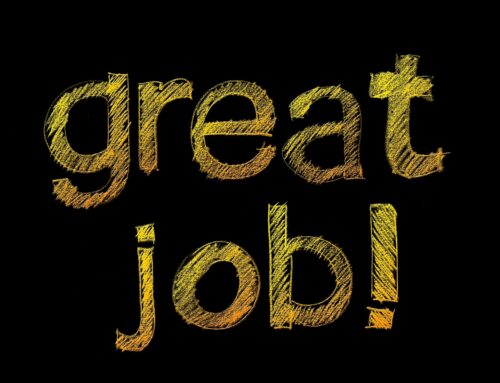In a recent episode of the television show “Better Call Saul,” the titular lawyer who has scrambled and struggled to earn a living decides to call it quits with the law right after being offered the best opportunity of his life with a prestigious firm. He thought that was his dream, until it came true. His friend reminded him of how hard he worked to pass the bar exam and then asked a pivotal question: Why abandon practicing law after working so hard to get established?
He responds by explaining the fallacy of the sunk cost. “It’s what gamblers do,” he says. “They throw good money after bad, thinking they can turn their luck around.” Recognizing, perhaps for the first time, that he doesn’t fit in as a lawyer, he tells her that his talents “are better suited elsewhere.”
Hearing those words uttered by a fictional attorney on a TV show was like a thunderbolt, because, in my practice as a coach, I have seen many clients utterly derailed by considerations of what they have already invested, and can never recover, when making decisions about the future. Simply being aware of this fallacy and its applications is helpful in making good decisions based on future opportunities and preferences rather than past costs. In economics, a “sunk cost” is generally defined as a past cost that is irretrievable and, therefore, should be irrelevant to future decision-making. In layman’s terms, using it as a basis for future investment is throwing good money after bad.
He responds by explaining the fallacy of the sunk cost. “It’s what gamblers do,” he says. “They throw good money after bad, thinking they can turn their luck around.” Recognizing, perhaps for the first time, that he doesn’t fit in as a lawyer, he tells her that his talents “are better suited elsewhere.”
A client was telling me about her struggles with losing weight. She had a glass or two of wine and then the next thing she knew, a bag of Cheetos had been consumed. After that, she thought, “I might as well eat the chips.” This is the precise moment she fell into the trap of sunk-cost thinking. It’s not possible to go back in time and not drink the wine or eat the Cheetos, but what does that have to do with the decision to eat even more? She was invested in the eating spiral, and completely hung up on what was already done. The momentum of the eating binge was now carrying her forward. Momentum is a wondrous force that propels us upward or downward and learning to harness it will have powerful effects on your life. The next day, my client could have said, “At least I didn’t eat the chips,” instead of giving herself permission to eat them because the diet was already ruined by what she consumed. She chose to spend more calories because of the sunk cost of those she had already expended. Coaching provides the time and space to verbally reflect on past experiences as learning opportunities, understand triggers, ask better questions and set intentions for future instances when the same type of thinking leads you down the rabbit hole. Most important is creating a strategy based on this acquired knowledge. Although she lamented her choice, my client was also able to laugh at her flawed reasoning, cut herself some slack and leave the past where it should be using gained insights to plan for better choices. One strategy is as simple as not having chips in the house when a moment of weakness comes. Being present and mindful is essential to catching yourself and effectuating habit change. It will not happen without intention and a plan.
Another client was grappling with a toxic relationship with an old friend. Every time they were together, my client came home feeling depleted, discouraged and depressed. The friend was critical and hurtful, yet she continued to accept invitations to get together. Why? Because they had been friends for so long (please fill in the explanation applicable in your own life, e.g., “because she’s my sister” or “because he helped me in the past”). Not all relationships are built to last. People change and no longer complement each other. When we allow history to dictate the future, we condemn ourselves to endure situations and tolerate behaviors. Again, asking good questions helps figure out the right path. Would you be together if you met today? Do you like the person? Love him? Why? Does this person give you energy? If the answers to these are no, you may want to cut your losses. In coaching, we look carefully at energy drainers: things the client is tolerating, because they stand in the way of getting what the client really wants to have in life and there is only so much room. We need to make space for good things to come in. A bad marriage, an abusive relative, or a horrible boss can monopolize your thinking to the exclusion of everything else, including positive aspects of your life that could be the foundation upon which to build your future.
Neither client was in coaching for the issues described, but they were standing in the way of moving forward with professional goals. Identifying energy drainers can simplify decision-making because tolerating them will cost you future opportunities.
Recently, I was looking forward to attending a professional event. The registration fee was paid and the day before, I came down with a bad cold. Chills, fever, coughing, sneezing—lovely. I knew then that I would be too sick the next day, but nevertheless set my alarm as if I were still going. After all, I had already paid for it and if I didn’t go, that money would be wasted, right? Well, it’s true that the money was spent and I would not get it back. But, can I benefit when I am that sick? Will my objectives be achieved when I should probably choose a hazmat suit over a business suit? What impression would I make with my tissues and cough drops? Would anyone want to hang out with the likely contagious woman? These are the questions I asked myself in order to make the decision not to go, focusing on what I had to gain by attending in my condition rather than what I had already spent, which could not be recovered in any case. The sunk cost fallacy comes into play with clutter as well. People hang onto clothes they don’t wear, gifts they never liked, and gadgets they never use simply because of the reason they were originally acquired or the cost associated with it. Now, they take up valuable real estate in the home, office and mind. It is helpful to ask how the item benefits you now. Do you like it? Use it?
When it comes to careers, many lawyers are stuck in the fallacy of sunk costs. Deeply unhappy, they resist change because of all that was invested in law school and working in the chosen area of practice. It is important to keep in mind that at age 30, 40 and even 50, you could have as many working years ahead as are behind you. Do you want to spend them in a place you detest because of a decision you made in the past? In the business world, sunk costs can be equipment or technology that is no longer useful. Your education and experience as a lawyer will never truly go to waste as you move through life. If nothing else, it serves as a navigational system helping you discern what you do and don’t want. And, it usually comes in handy in whatever you do in the future.
What will it cost you to live your default life—the one that will happen if you do nothing to change it? Instead of dwelling on the time and money already spent that you cannot change, imagine in vivid detail a future where you are fulfilled, challenged and satisfied. What does that look like? Describe it in writing. If it looks, feels and sounds better than the path you currently walk, you may be operating under the fallacy of sunk costs and a shift in thinking can change the trajectory of your career and life.
Reprinted with permission from the March 24, 2016 edition of “The Legal Intelligencer” © 2016 ALM Media Properties, LLC. All rights reserved. Further duplication without permission is prohibited. For information, contact 877-257-3382, reprints@alm.com or visit www.almreprints.com





